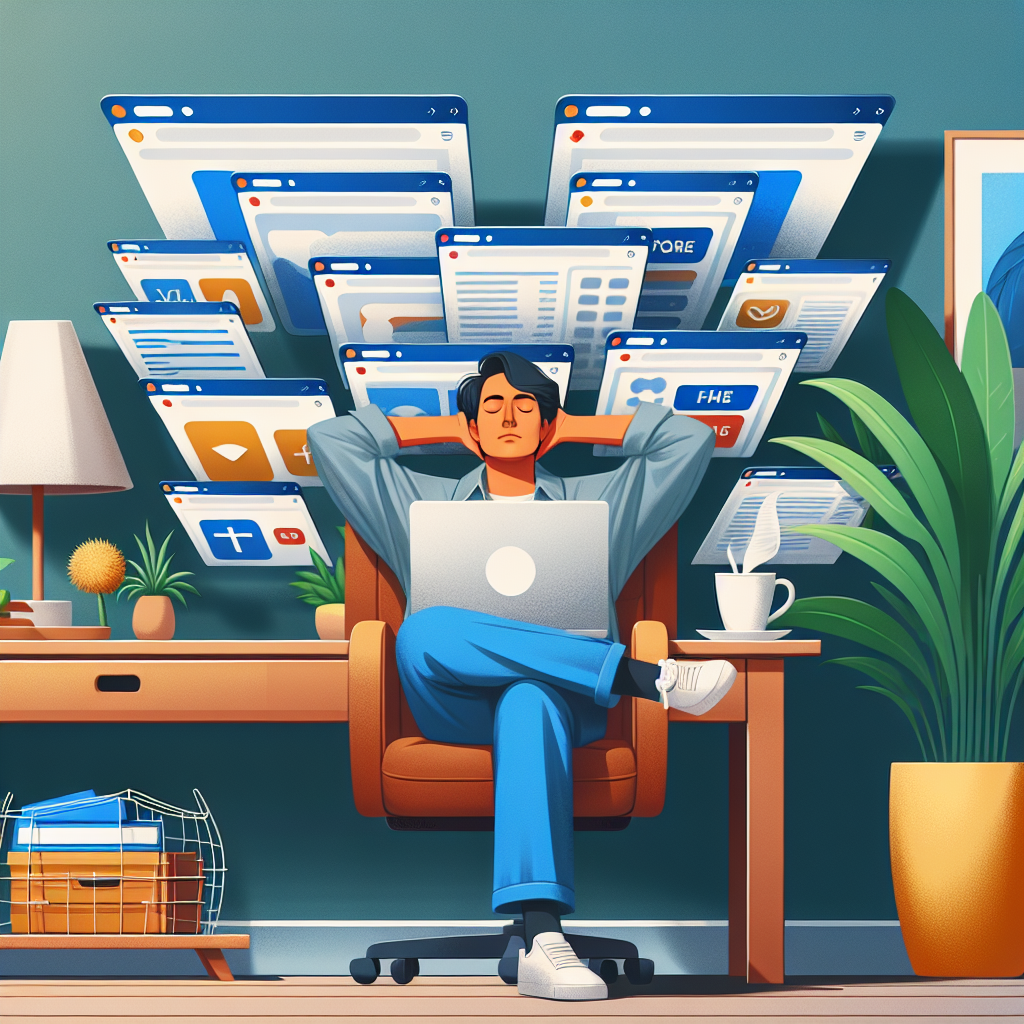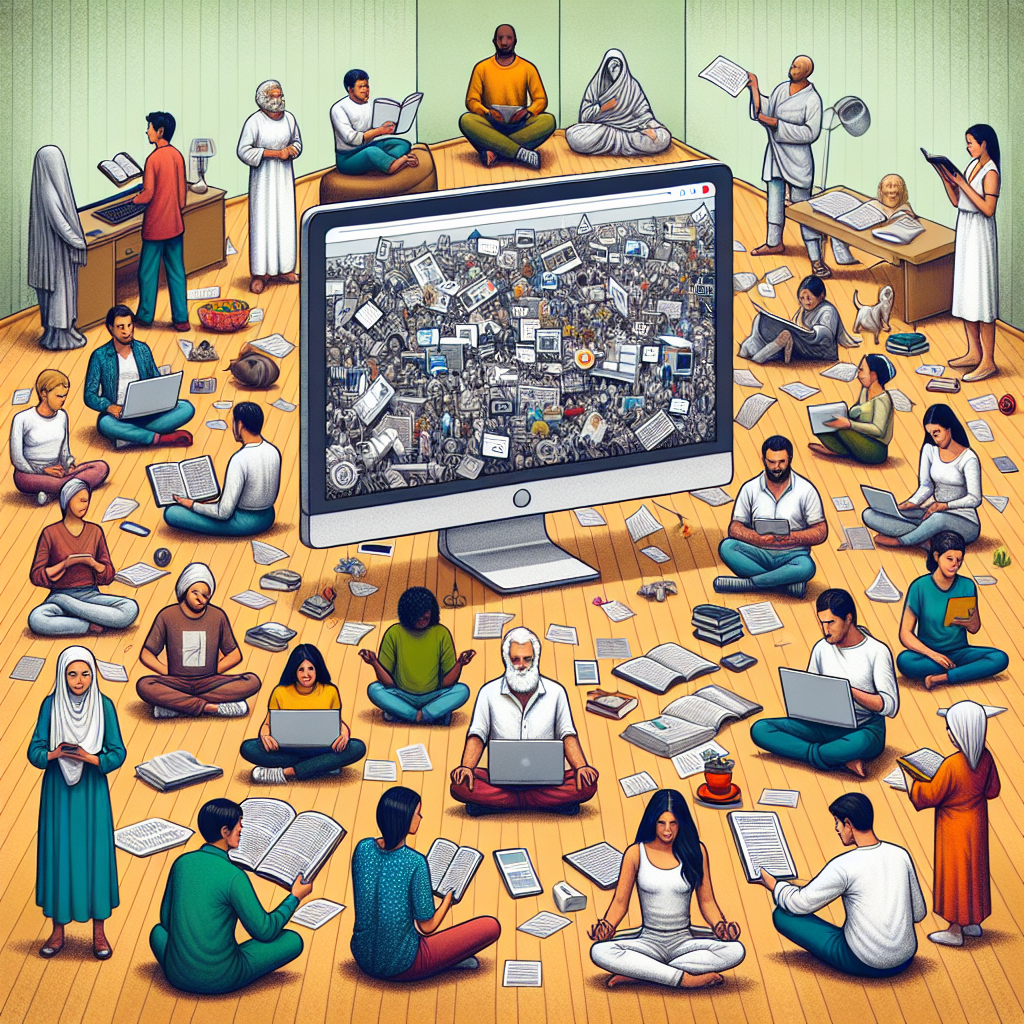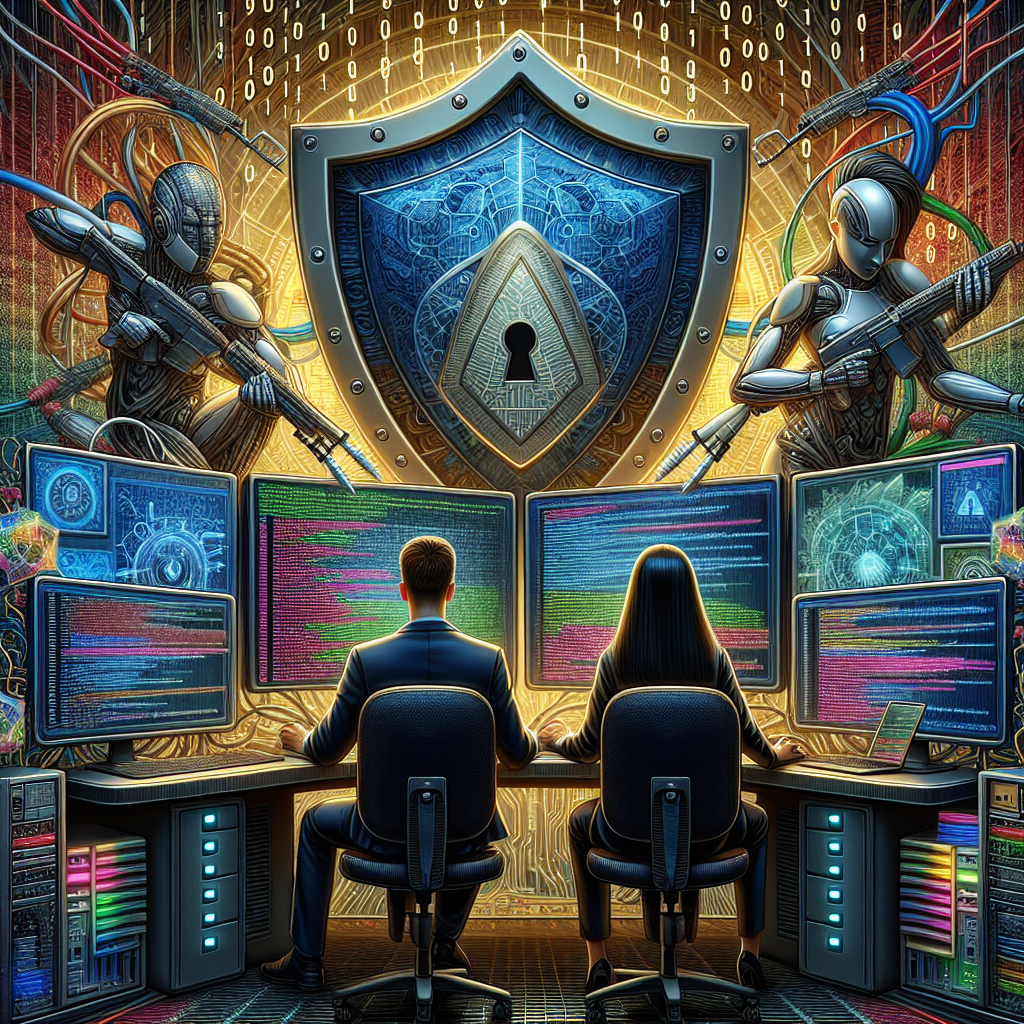Tips for Avoiding Online Content Overload
September 12, 2024 | by Christopher Moore

In this digital age, we are constantly bombarded with an overwhelming amount of online content. From social media feeds to email newsletters, it’s easy to feel inundated and lost in the sea of information. But fear not, there are ways to avoid content overload and reclaim your sanity! In this guide, we will explore some practical tips to help you navigate the online world with ease. By implementing these strategies, you can streamline your digital consumption, maintain a healthy balance, and stay informed without feeling overwhelmed. Join us as we uncover the secrets to mastering the online content overload!
Understanding Online Content Overload
In the fast-paced digital age we live in, it’s easy to fall into the trap of online content overload without even realizing it. Understanding the phenomenon of content overload is crucial in order to effectively address and manage it.
- Recognizing the signs of content overload:
- Constantly feeling overwhelmed by the sheer volume of information available online.
- Difficulty in focusing on tasks due to constant distractions from browsing through various content.
-
Feeling anxious or stressed when trying to keep up with the influx of new information.
-
Impact of content overload on mental health and productivity:
- Excessive consumption of online content can lead to information fatigue, reducing cognitive abilities and decision-making skills.
- It can also contribute to feelings of inadequacy or FOMO (fear of missing out) as individuals compare themselves to curated online personas.
-
Productivity often takes a hit when one is constantly bombarded with new information, making it challenging to prioritize tasks effectively.
-
Importance of managing online content consumption:
- Recognizing the need to set boundaries and allocate specific times for consuming online content.
- Prioritizing quality over quantity by curating sources that provide valuable and relevant information.
- Engaging in activities that promote mindfulness and mental clarity to counteract the negative effects of content overload.
Filtering Your Online Content Intake

Curate Your Sources
When it comes to avoiding online content overload, one effective strategy is to curate your sources carefully. By being selective about where you get your information from, you can ensure that you are only exposed to quality content that is relevant to your interests and needs. Here are some tips for curating your sources effectively:
-
Follow reliable sources for quality content: Seek out sources that have a reputation for producing accurate and trustworthy information. This can include established news outlets, reputable blogs, and industry-specific websites. By focusing on sources that have a track record of reliability, you can reduce the risk of being exposed to misleading or false information.
-
Use content curation tools to organize information: Take advantage of content curation tools that can help you manage and organize the content you consume. These tools allow you to subscribe to specific sources, create customized feeds, and filter out irrelevant content. By using these tools, you can streamline your online content intake and ensure that you are only seeing information that is valuable to you.
Set Priorities
Setting priorities when it comes to consuming online content is crucial in managing online content overload effectively. Here are some detailed steps on how to set priorities:
-
Identify your interests and priorities: Begin by recognizing what topics or subjects truly matter to you. Determine which areas of knowledge or information are essential for your personal or professional growth. By understanding your interests, you can filter out irrelevant content and focus on what is most relevant to you.
-
Focus on consuming content that aligns with your goals: Once you have identified your interests and priorities, it is important to align your content consumption with your goals. Whether you aim to learn new skills, stay informed about industry trends, or simply seek entertainment, ensure that the content you engage with serves a purpose and contributes positively to your objectives. This targeted approach will help you avoid being overwhelmed by excessive and unnecessary information.
Establishing Boundaries for Content Consumption
Define Screen Time Limits
Setting specific time limits for browsing and consuming online content is crucial in managing digital consumption effectively. Without clear boundaries, it’s easy to get caught up in endless scrolling and content consumption, leading to information overload and decreased productivity. By defining screen time limits, individuals can take control of their online habits and prioritize meaningful activities. Here are some strategies to establish and enforce screen time boundaries:
-
Schedule Screen Time: Allocate specific time slots throughout the day dedicated to consuming online content. This could include checking social media, reading articles, or watching videos. By setting designated periods for screen time, individuals can prevent excessive browsing and maintain a healthy balance.
-
Use Time-Tracking Tools: Utilize apps or features that track screen time and provide insights into digital habits. These tools can help individuals become more aware of their online behavior and identify areas where they may be spending excessive time. By monitoring screen time, users can make informed decisions about when to disconnect and engage in other activities.
-
Implement Digital Detoxes: Consider implementing regular digital detox periods where screen time is minimized or eliminated altogether. This could involve taking breaks from electronic devices for a few hours or even a full day. By consciously unplugging from the digital world, individuals can reduce content overload, improve mental well-being, and focus on offline pursuits.
Designate Content-Free Zones
Creating designated content-free zones in your daily routine can significantly help in reducing online content overload. By setting up specific areas or times where digital distractions are not allowed, you can create a more focused and mindful environment for yourself. Here are some strategies to establish content-free zones:
- Identify Distraction-Free Spaces: Choose physical locations where you will not engage with online content, such as the dining room, bedroom, or outdoor patio.
- Set Clear Boundaries: Clearly define the boundaries of these content-free zones to yourself and others in your household. Communicate the importance of uninterrupted time in these areas.
- Use Technology Tools: Utilize apps or features on your devices that block access to certain websites or apps during designated times. This can help reinforce your content-free zones.
- Establish Routine: Incorporate these zones into your daily schedule consistently. Over time, this routine will become a habit, making it easier to resist the temptation of online content during these times.
- Practice Mindfulness: When in a content-free zone, focus on being present in the moment. Engage in activities that promote relaxation and mental clarity, such as reading a book, practicing meditation, or going for a walk.
By implementing content-free zones effectively, you can create a healthier balance between online consumption and offline activities, ultimately reducing the risk of experiencing content overload.

Implementing Effective Content Management Strategies
Organize Your Digital Space
In today’s digital age, it is crucial to maintain a well-organized digital space to avoid content overload and ensure productivity. Here are some tips to help you declutter and streamline your digital devices and desktop:
- Declutter your digital devices and desktop
- Start by going through your files, apps, and documents to delete any unnecessary or outdated items.
- Remove any duplicate files or apps that are taking up valuable space on your devices.
-
Regularly clean out your downloads folder and trash to free up storage space.
-
Use folders and labels to categorize and prioritize content
- Create specific folders on your desktop or in your file storage system to organize different types of content.
- Utilize labels or tags to easily identify and sort through files based on their importance or relevance.
- Develop a consistent naming convention for your files to make them easier to search for and locate when needed.
By implementing these strategies, you can effectively organize your digital space and reduce the risk of feeling overwhelmed by online content.
Practice Mindful Consumption
In today’s digital age, it is crucial to adopt mindful consumption habits to avoid online content overload. Mindful consumption involves being intentional and aware of your online activities to prevent being overwhelmed by the vast amount of information available. Here are some strategies to help you practice mindful consumption effectively:
-
Avoid multitasking while consuming content: Multitasking can lead to cognitive overload and hinder your ability to absorb and retain information. Focus on one task or piece of content at a time to fully engage with it and avoid feeling overwhelmed.
-
Take breaks and practice mindfulness to stay focused: Set aside regular breaks during your online activities to give your mind a rest and prevent burnout. Engage in mindfulness practices such as deep breathing or meditation to stay present and focused on the content you are consuming. This will help you retain information better and avoid feeling mentally drained.
Engaging in Active Content Consumption
Practice Critical Thinking
When it comes to avoiding online content overload, practicing critical thinking is crucial to sift through the vast amount of information available. Here are some key points to consider:
-
Evaluate the credibility and relevance of online content: Before accepting information as truth or sharing it with others, take the time to assess the credibility of the source. Look for reputable websites, check the author’s credentials, and cross-reference the information with other reliable sources. Question the motives behind the content and be wary of clickbait or sensationalized headlines.
-
Fact-check information before sharing or acting on it: In the age of social media and instant sharing, misinformation can spread rapidly. To combat this, make fact-checking a habit before amplifying any content. Utilize fact-checking websites, verify statistics or data provided, and ensure that the information aligns with established facts. By verifying the accuracy of content, you can help prevent the dissemination of false information and contribute to a more informed online community.
Engage in Meaningful Interactions
Engaging in meaningful interactions is essential for combating online content overload. Here are some strategies to help you make the most out of your online discussions:
- Participate in discussions and forums: Actively engaging in discussions and forums related to the content you are consuming can significantly enhance your understanding. By asking questions, sharing your thoughts, and interacting with others, you can gain new perspectives and insights that enrich your overall online experience.

– Share insights and perspectives: Don’t be afraid to share your own insights and perspectives on the content you come across. By contributing to online conversations, you not only add value to the discussion but also solidify your own understanding of the material. Sharing your unique viewpoint can also spark further dialogue and deepen the collective knowledge within the online community.
Seeking Support and Accountability
Connect with Like-Minded Individuals
In the digital age, connecting with like-minded individuals can be a valuable strategy for avoiding online content overload. By joining online communities or groups that share similar interests, individuals can find a supportive network that understands the challenges of managing the vast amount of information available online. This sense of camaraderie can provide a space for individuals to share their experiences with content overload and seek advice from others who may have developed effective strategies for navigating the digital landscape.
-
Join online communities or groups with similar interests: Seek out forums, social media groups, or online platforms dedicated to topics that align with your interests or professional goals. Engaging with a community of like-minded individuals can offer a sense of belonging and the opportunity to exchange tips and insights on how to avoid becoming overwhelmed by online content.
-
Share experiences and seek advice on managing content overload: Within these online communities, take advantage of the collective wisdom of fellow members by actively participating in discussions about content overload. By sharing your own experiences and challenges, you can not only receive validation and support but also gain valuable tips and strategies from others who have faced similar struggles. This open exchange of ideas can lead to the discovery of new techniques for curating and consuming online content more effectively.
Accountability Partnerships
-
Partner with friends or colleagues to hold each other accountable for healthy content consumption habits: Establishing an accountability partnership involves selecting a trusted individual with whom you can openly discuss your online content consumption patterns. This individual serves as a support system to help you stay on track with your goals and limits regarding the content you consume.
-
Check-in regularly to discuss challenges and progress in managing online content: Regular communication is key to the success of an accountability partnership. By scheduling periodic check-ins with your partner, you can share any difficulties you are facing in managing online content overload and celebrate milestones in your journey towards healthier consumption habits. These discussions provide an opportunity for both parties to offer support, encouragement, and constructive feedback to help each other stay focused and motivated.
FAQs: Tips for Avoiding Online Content Overload
How can I manage my time effectively while consuming online content?
One helpful tip for managing time effectively while consuming online content is to set specific time blocks for browsing and limit the amount of time spent on each website or social media platform. It can also be beneficial to create a schedule and prioritize tasks that need to be completed before indulging in online content. Additionally, utilizing tools such as browser extensions that block distracting websites can help in staying focused.
What are some strategies for curating the online content I consume?
To avoid content overload, it is important to curate the online content you consume by following only a select number of reputable sources and unsubscribing from unnecessary email newsletters or notifications. You can also create specific bookmarks or lists for articles, videos, or podcasts that you want to read or watch later. Another useful strategy is to regularly review and clean up your social media feeds by unfollowing accounts that do not add value to your online experience.
How can I balance staying informed with avoiding content overload?
Balancing staying informed with avoiding content overload can be achieved by setting boundaries and being selective about the sources of information you trust. It is advisable to limit the amount of time spent on consuming news and to take breaks from constantly checking for updates. Engaging in offline activities or hobbies can also help in maintaining a healthy balance between staying informed and avoiding online content overload.
3 Simple Tips to avoid content overload and improve your mental wellness 🌊
RELATED POSTS
View all


